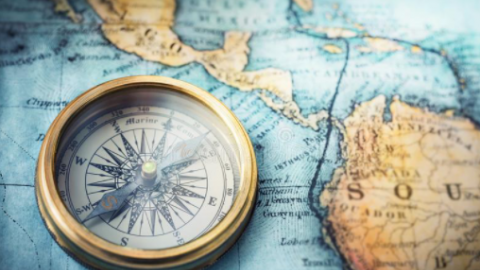The study of Geography is to enable pupils to understand the interaction of human beings with their environments– at personal, local, regional, national and global scales.
What our pupils will learn (intent):
In EYFS, pupils are taught the knowledge and skills for ‘People and Communities’ and ‘The World’ using a thematic approach outlined in our EYFS Curriculum for Understanding the World (see EYFS Curriculum). The themes are linked to the Scheme of Work for Key Stage 1 to ensure progression as pupils move from EYFS to Key Stage 1.
We have adapted Connected Geography Scheme of Work to deliver the National Curriculum for Geography throughout Key Stage 1 and 2. The scheme of work is well-sequenced, with a clear progression in knowledge, skills, concepts and vocabulary and links to other curriculum subjects. The scheme of work provides resources to support teaching and learning in Geography.
Our school has some single age classes and some mixed-age classes; a rolling programme is in place to ensure that children receive their full curriculum entitlement. Detailed information about the rolling programme, curriculum content and progression is attached below.
How the Geography curriculum will be taught to our pupils (implementation):
In EYFS, themes relating to 'People and Communities' and 'The World' are taught in a block of lessons each half term.
In Key Stage 1, Geography topics are taught in a block of lessons each half term.
In Key Stage 2, Geography topics are taught in weekly lessons in alternate half terms (alternating with History). This enables pupils to focus on aspects of particular topics for a greater period of time, allowing for greater depth of study, rather than teaching both History and Geography topics simultaneously.
Progress and Assessment in Geography
EYFS
A class Big Book records learning that has taken place during each theme and the book is used to revisit knowledge at regular intervals through the year, (roughly 2, 6 and 12 weeks) to ensure children remember what they have learnt. Regular observations and formative assessments of our curriculum for 'People and Communities' and 'The World' take place and contribute to a summative assessment at the end of EYFS, using the Early Years Outcomes for Understanding the World
Key Stage 1
Work is recorded in a class Geography Big Book and the book is used to revisit knowledge at regular intervals through the year, (roughly 2, 6 and 12 weeks) to ensure children remember what they have learnt. The teachers make notes of their observations and ongoing assessments so that they can address gaps in pupils' understanding. The information from teacher’s assessments contributes to an end of year summative assessment.
Key Stage 2
Ongoing assessments of pupils' understanding are made each lesson and are used to address any gaps. 'Sticky knowledge' checks are carried out every half term in line with research which shows that retrieval checks of knowledge at regular, spaced intervals (ideally at 2, 6 and 12 weeks after completing a topic) enable knowledge to be transferred to long-term memory. Progress is measured by children knowing and remembering more.
Impact:
The impact of the curriculum will be measured by how much pupils to know and remember our Geography curriculum. The impact of the curriculum will be reported at the end of the year. Evidence which will contribute to impact of Geography includes results of assessments and sticky knowledge checks, pupil voice, learning walks, lesson observations and and work scrutiny. The Geography curriculum will be monitored by the Subject Leader, Headteacher and Geography Governor.

